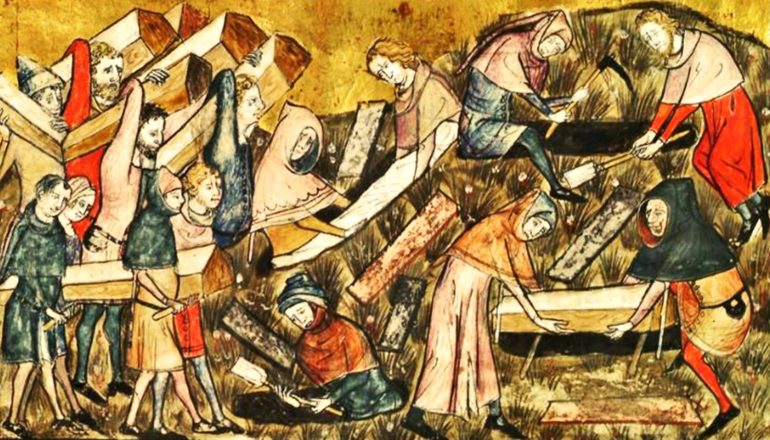
There are parallels between today’s COVID-19 pandemic and the Black Death of 14th-century Italy, as well as lessons we can learn from that time, historian Paula Findlen argues.
For Italians in the 14th-century, the bubonic plague at first seemed extraordinary but its repeated return made it so much a part of daily life that it became an economic annoyance and an administrative problem to resolve. The plague eventually led to advances in medicine and public health, according to Findlen, a professor of Italian history at Stanford University and director of the Suppes Center for the History and Philosophy of Science and Technology.
“The history of pandemics—and not only plague—puts our fears about COVID-19 in perspective. Earlier societies repeatedly found ways to recover from the impact of disease, with far fewer resources than we have today. I hope this reminds us to be creative and resilient with our own challenges,” says Findlen, whose research examines how the early history of science, medicine, and technology are central to understanding contemporary society.
Findlen recently wrote a review essay about the Florentine humanist Boccaccio’s experience with the Black Death in Renaissance Italy.
As the world confronts another global pandemic, Findlen explains the problems Renaissance Italians faced related to the Black Death, including ones that might seem familiar to us today, such as the difficulties of reliably reporting the disease, misinformation campaigns, and political tensions between states around their response.
She also digs into the origins of the word “quarantine” and Giovanni Filippo Ingrassia, whom Findlen likens to a Renaissance version of Anthony Fauci, director of the US National Institute of Allergy and Infectious Diseases:
The post Black Death shows how disease changes daily life appeared first on Futurity.
from Futurity https://ift.tt/2Z1Z04r
No comments:
Post a Comment